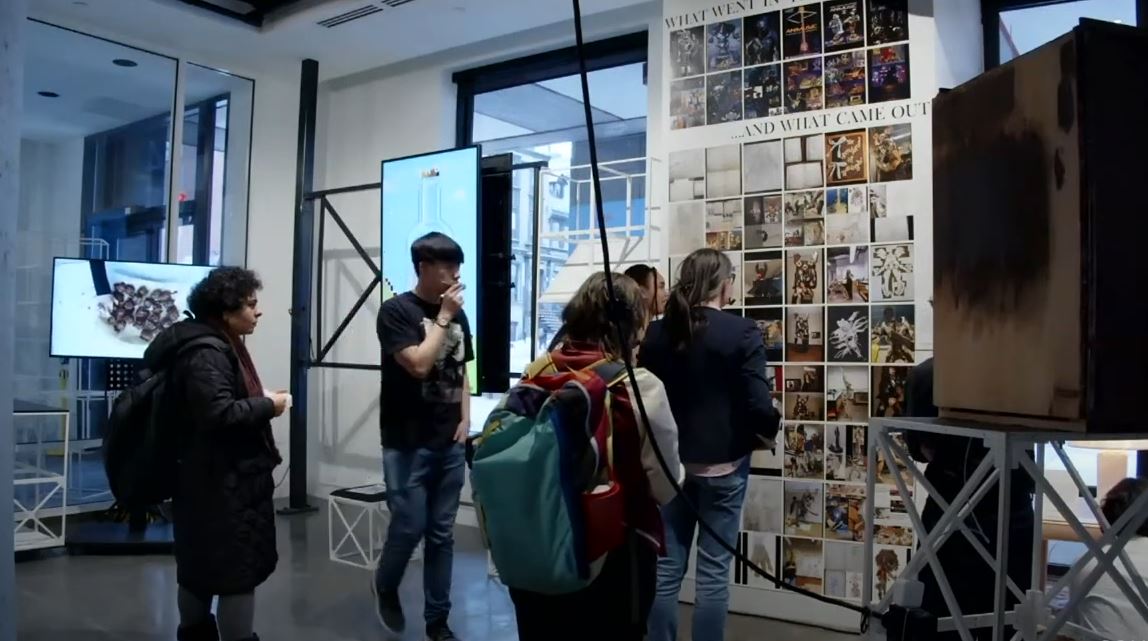As we approach the season for a new symposium, we can’t help but feel nostalgic for last year’s presenters and research creation artists at Time in a Bottle 2024!
TOP OF THE MORNING…
Richy Srirachanikorn opened with a keynote on Time Capsules; how does American mobster Al Capone, a military school, and Barbie relate to nostalgia?
PANEL 1: HEAR AND NOW (Sounds & Nostalgia)
Listen up and listen closely!
Christopher Anderson from the University of British Columbia explores how machine learning, the use of sound editing, and hauntological theories helps us see the allure of the ‘nostalgic sound’ from modern music machines.
Guillaume Jabbour from Concordia University takes us through his fieldwork of interviews with people who have a connection with the Avoca Bridge, showing us how they actively listened to the bridge with devices, and how this provided more insight into their nostalgic recollections.
Artist Russell Gendron recalls his conversations with sawmill and forestry workers in British Columbia, playing excerpts of interview parts that show the complex nature of nostalgia: a sentimentality of the past can also recover the blasé, the grueling, and the negative shades of it.
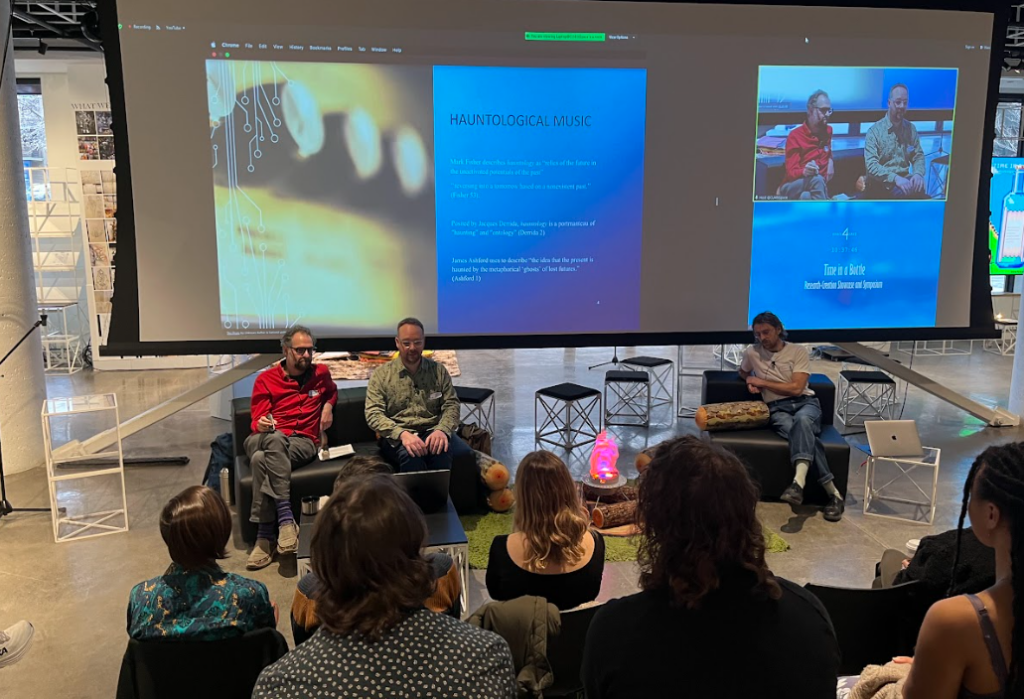
PANEL 2:
NOSTALGIC NARRATIVES (Identity & Nostalgia)
How can I learn more about myself with nostalgia?
TAG alum Owen Hellum plays with identity exploration and the encounter of lost memories — literally! Whilst discussing these ideas, he was playing the game he made that inspired this nostalgic thought. Talk about multi-tasking!
Dr. Maxime Deslongchamps-Gagnon from the Universite de Montreal and Universite du Quebec takes us back to childhood with coming-of-age games and evaluates the nostalgic journey one may feel, now, as an adult playing their past.
From Tampere University, Dr. Rainforest Scully-Blaker, also another TAG alum, pitted the comfortable reputation of video games against its political undertones. Some games resemble the Good Old Days — but for whom? Who is excluded?
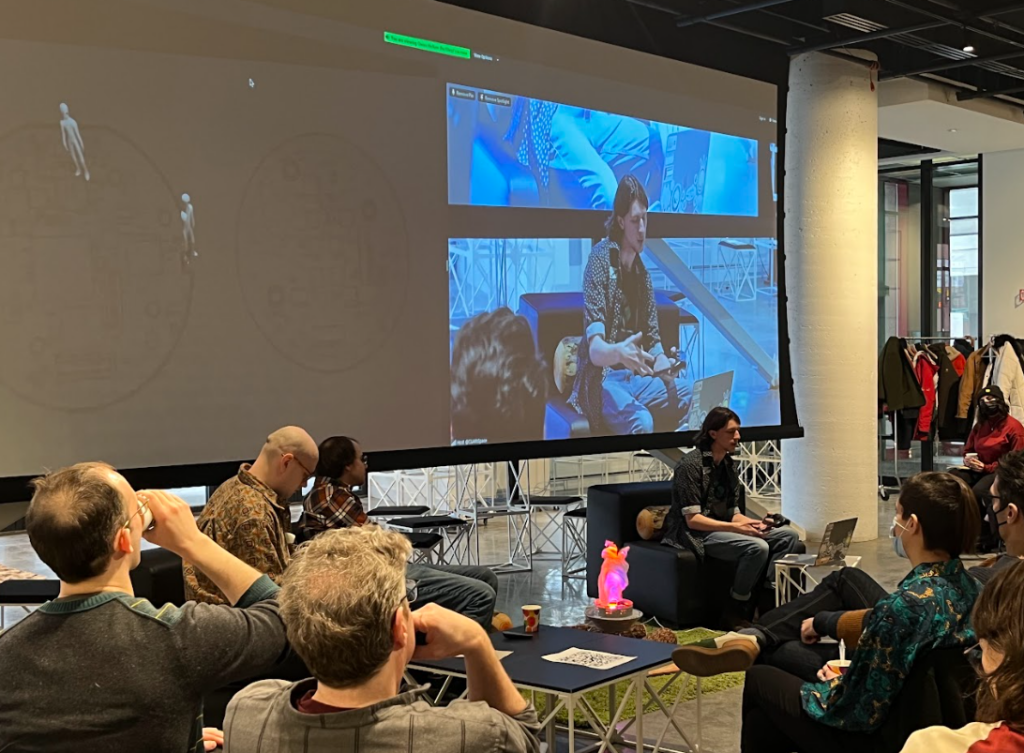
A LIVE(LY) LUNCHTIME!
As our participants mingled around, some participated in a LIVE taping of the Have You Played Podcast with Dr. Marc Lajeunesse and Dr. Andrei Zanescu.

PANEL 3:
PLAYING WITH THE PAST
(Video Games & Nostalgia)
The Triforce of scholarship has assembled!
We open strong with Dr. Nick Bowman, Associate Professor of Communications at Syracuse University, on sense of place and how discussing nostalgia with many age groups and demographics can reveal insights that speak to current trends!
TAG Coordinator, Dr. Marc Lajeunesse is passed the mantle and lights up the room with the tug-of-war between the nostalgia that is played and produced. Case in point: World of Warcraft’s Blizzard Entertainment vs. The People.
We finish just as strong with Concordia University PhD candidate Alex Custodio, who revives previous iteration of Nintendo consoles, their attempts at banking on fans’ nostalgias, and the enduring love/hate relationship we have with it.
RESEARCH CREATION!
Nostalgia can be deconstructed in conversations around creations of nostalgia.
True Story, a Fairy Tale 2023
Play, larger-than-life, trauma
Installation artist Kelly Day embodies her CPTSD into a fairy tale book that layers as the gut-brain axis response to stress. This nostalgic creation is equal parts endearing and striking.
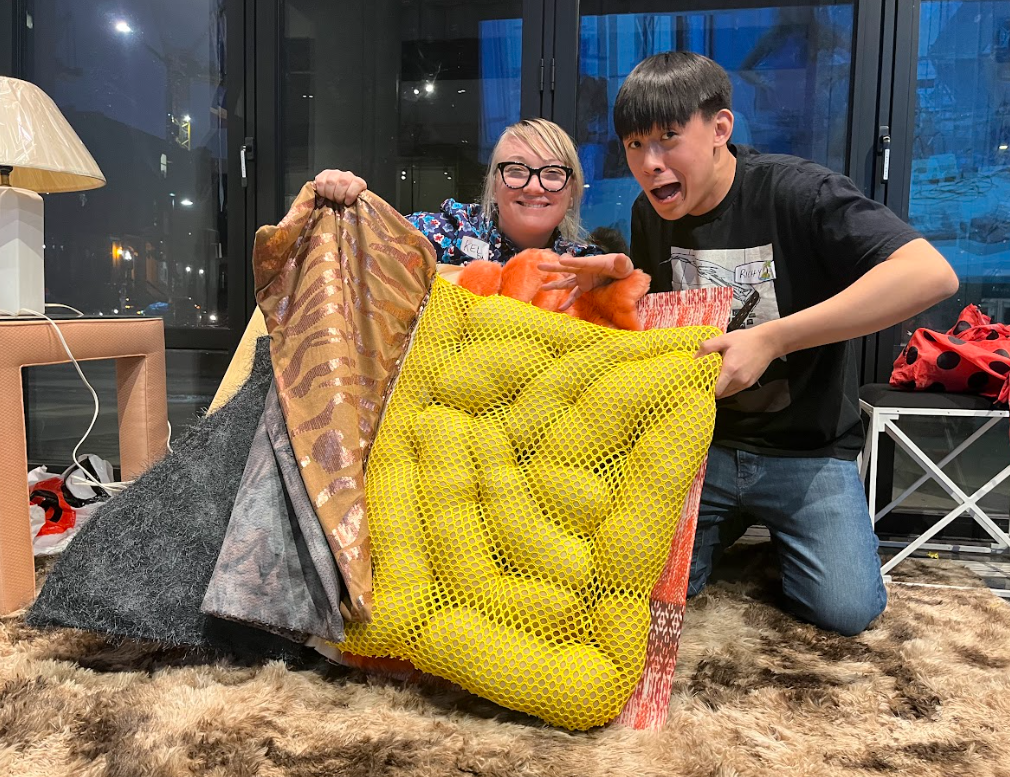
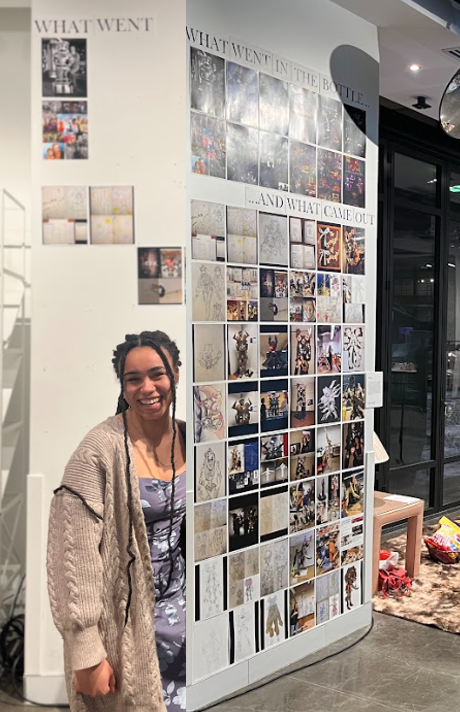
Made by the Bottle
(Robots, Influence, Career)
Sculptor and artist Esther Clarke rolls out a touching tapestry of media influences and previous works that have led up to present day. Participants gathered around the mural as Esther recaptured each of the snapshots of her life – the notable and the nostalgic – related to memories of her mother, art, and love for robots.
Reimagining the Alphorn
(Identity, Instrument, Swiss)
Musician and producer Lisa Conway revisits her/the history of nostalgia through recordings of the Alphorn, a Swiss instrument that shaped her identity as a musician. Historically, nostalgia emerged as a diagnosis of Swiss soldiers who felt homesickness. Lisa puts a spin, and a musical overtone, on H(er)story!
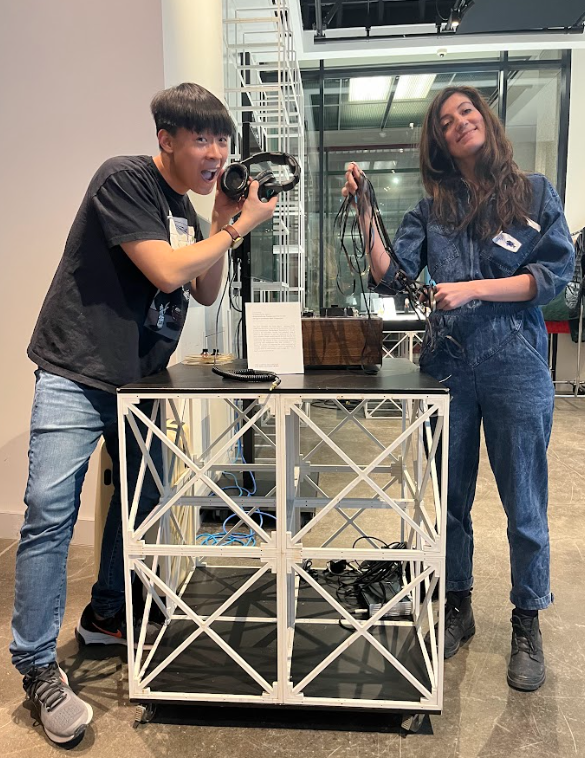
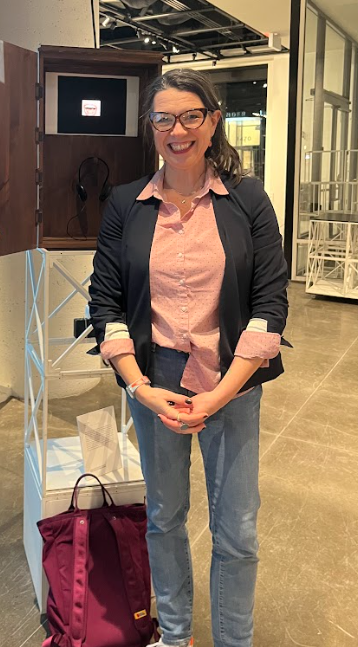
Open Up
(Candy, Cabinet, Curiousity)
Winner of the Prix Relève étoile Paul-Gérin-Lajoie, Nancy Long brings nostalgia to the visceral. The installation asks participants to wear headphones and watch closely. The sights and sounds of saliva, chewing, and swallowing presents how nostalgia is consumed; the filmed eaters are participants who chose candies which were nostalgic for them.
Do you still have an appetite for more nostalgia?
Divergent Fables
(Storytelling, Selfies, Fables)
Computation Art students Kamyar Karimi and Rebecca Acone‘s web app prompts users to take photos that fit classic stories – decisions lead to debates on nostalgia, perspective, and representation.
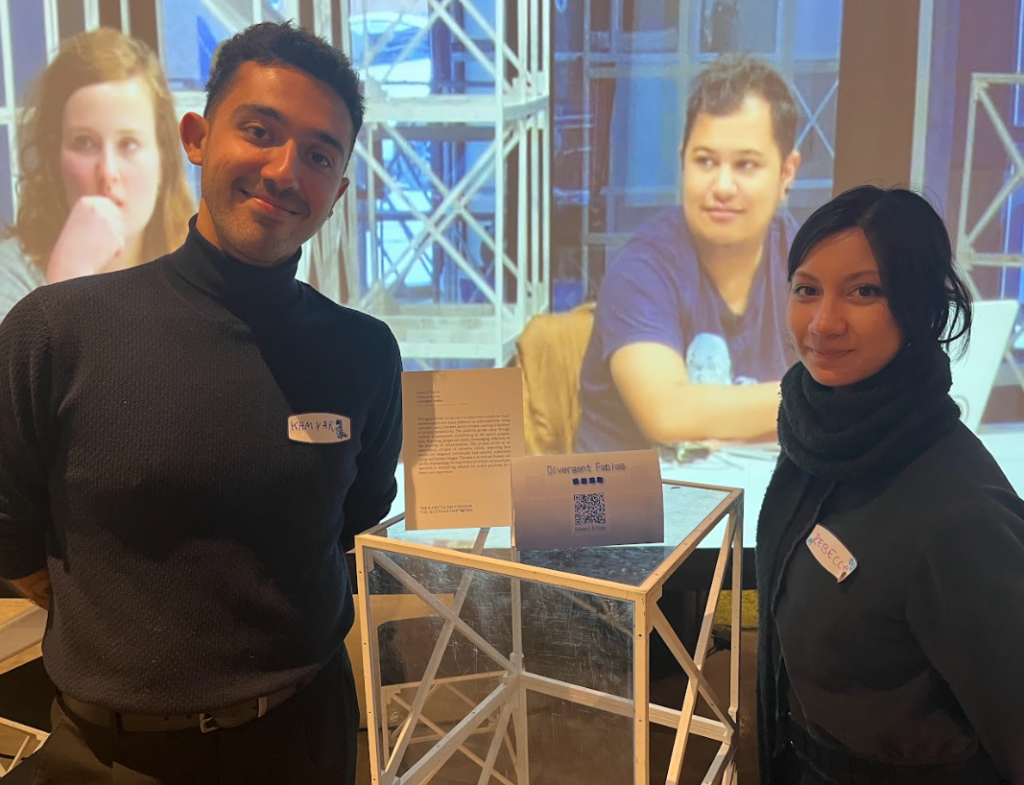
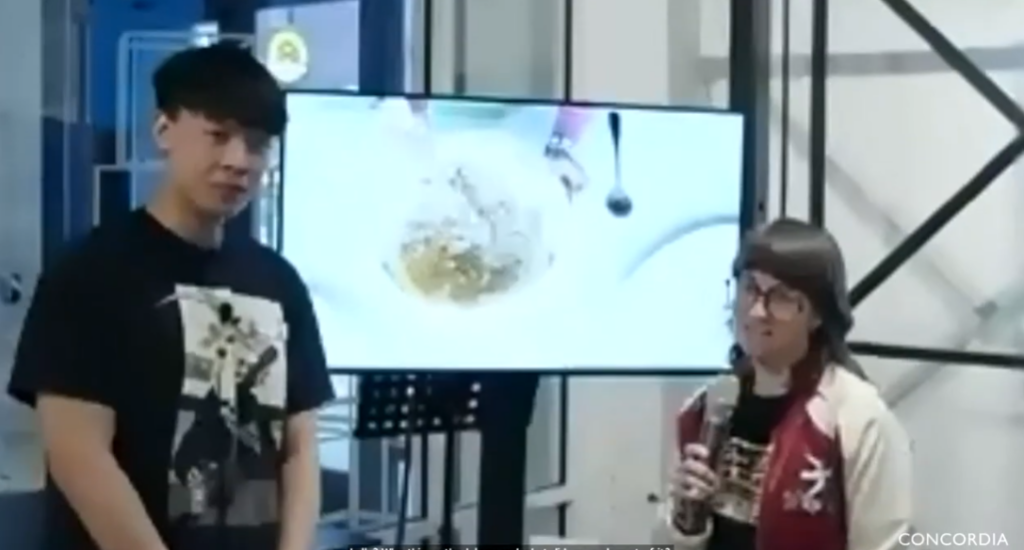
How to Make Peanut Butter Balls
(Memory, Food, Oral History)
Ainslinn Leggett films her and her children making a passed-down recipe from her Great Aunt, whom she never met. What is the taste of memory? Find out here.
PANEL 4:
COMFORT & COMPLICATION (Technology & Nostalgia)
What affordances and regressions does technology pose for nostalgia?
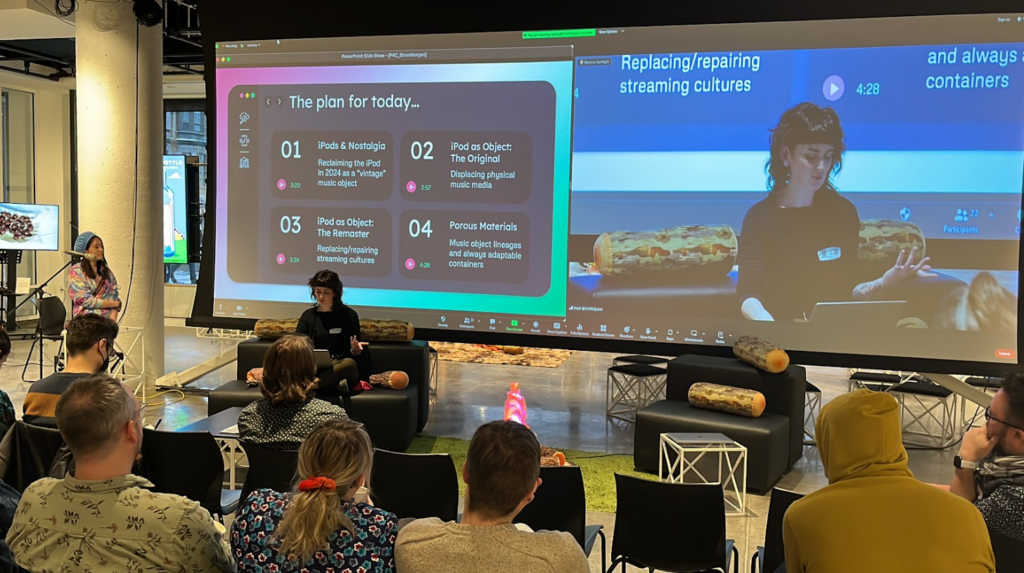
Online presenters from Uppsala University, helmed by Shashvat Singh, presented on the video game Venba and its representation of Tamil Culture through themes of food, culture, and relationships. Is the nostalgia accurately portrayed in games?
From University of Seville, Dr. Diego A. Mejia-Alandia takes us through a myriad of games depicting the Soviet Union and after its Fall. How is the history of this tumultuous time captured across video game experiences?
Assistant Professor of Women and Gender Studies at St. Francis Xavier University, Dr. Morgan Bimm, proposes the iPod is a model for resisting technological progress as its ergonomic design, use, and lifestyle preserves a 2010s nostalgia.

Each of our presenters and artists are part of the NOSTAGAIN NETWORK, an international list of researchers, professionals, and makers who have expressed nostalgia in their works. Learn more about how to become part of the network.
Contact Information
Derek Pasborg, Event Communications
Richy Srirachanikorn, Network Organization
THENOSTAGAINNETWORK
Released October 9th, 2024
Last updated: October 16th, 2025
